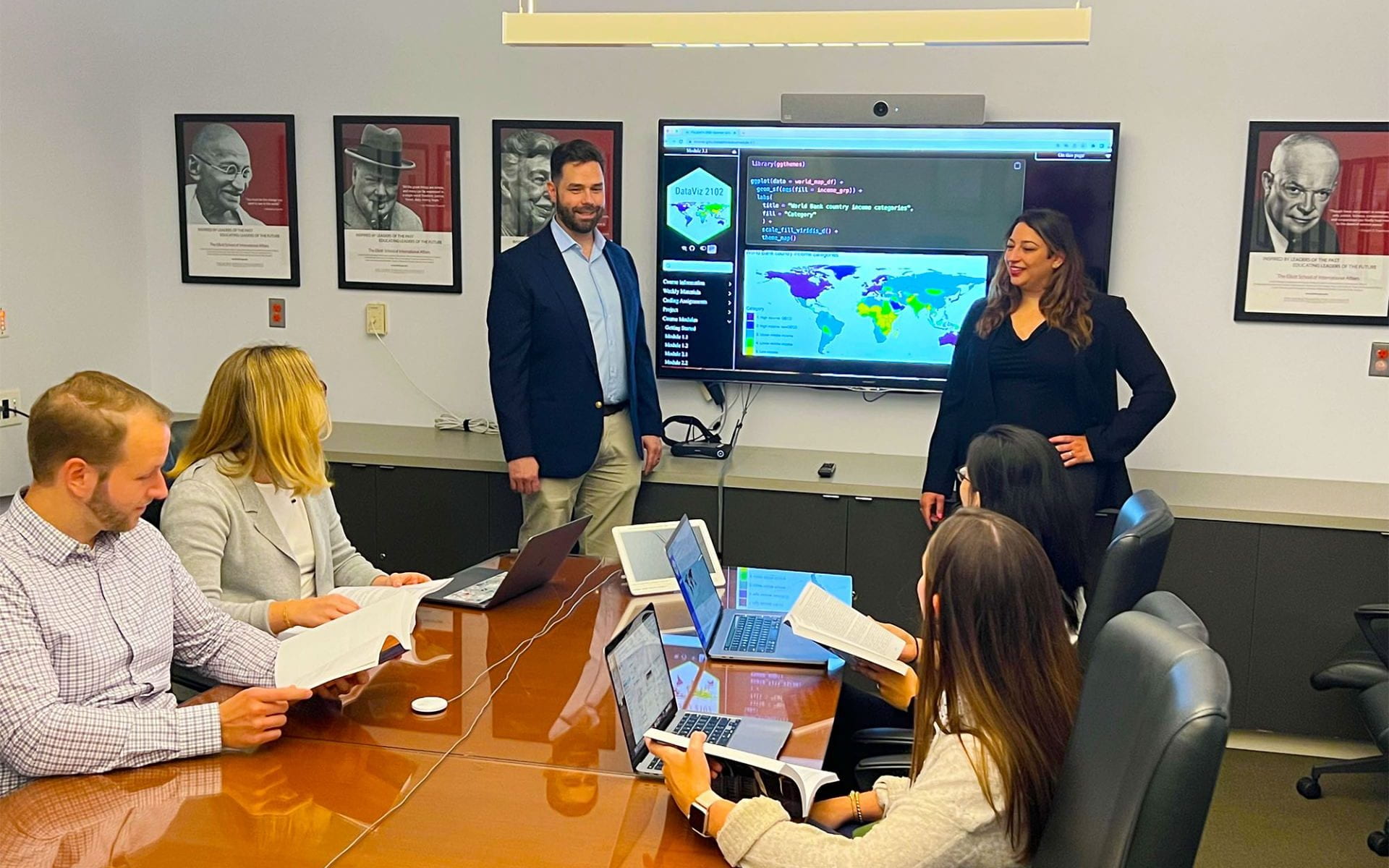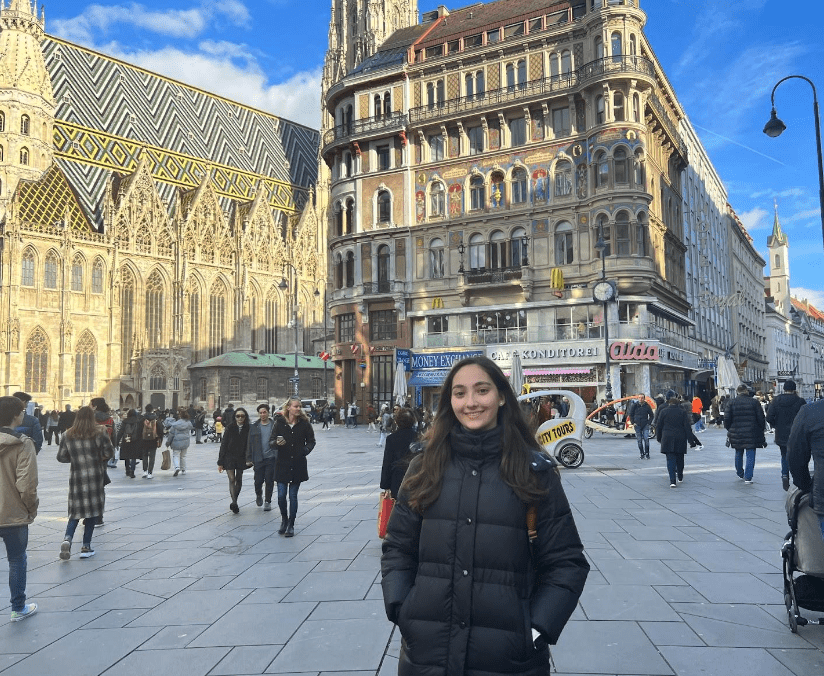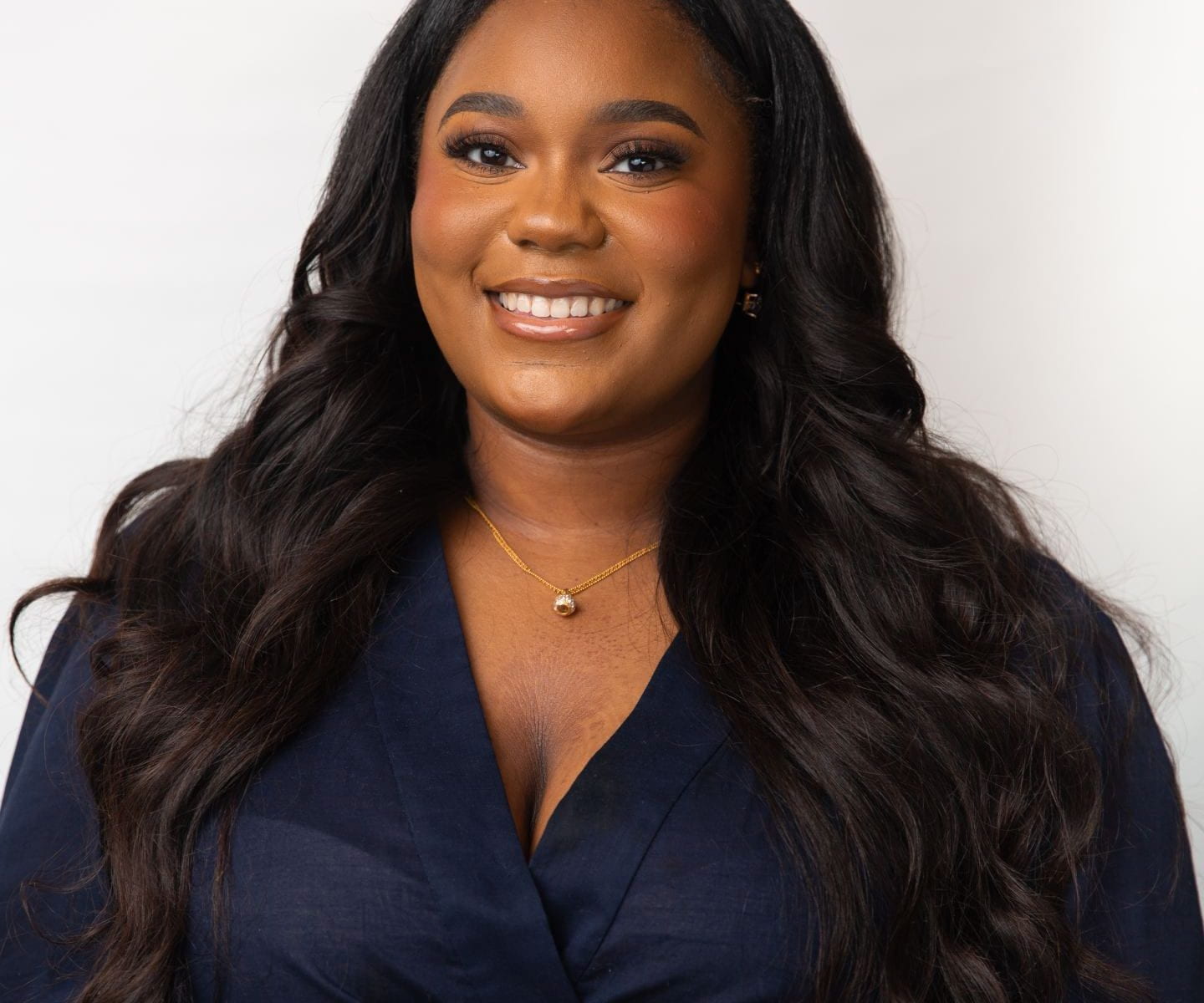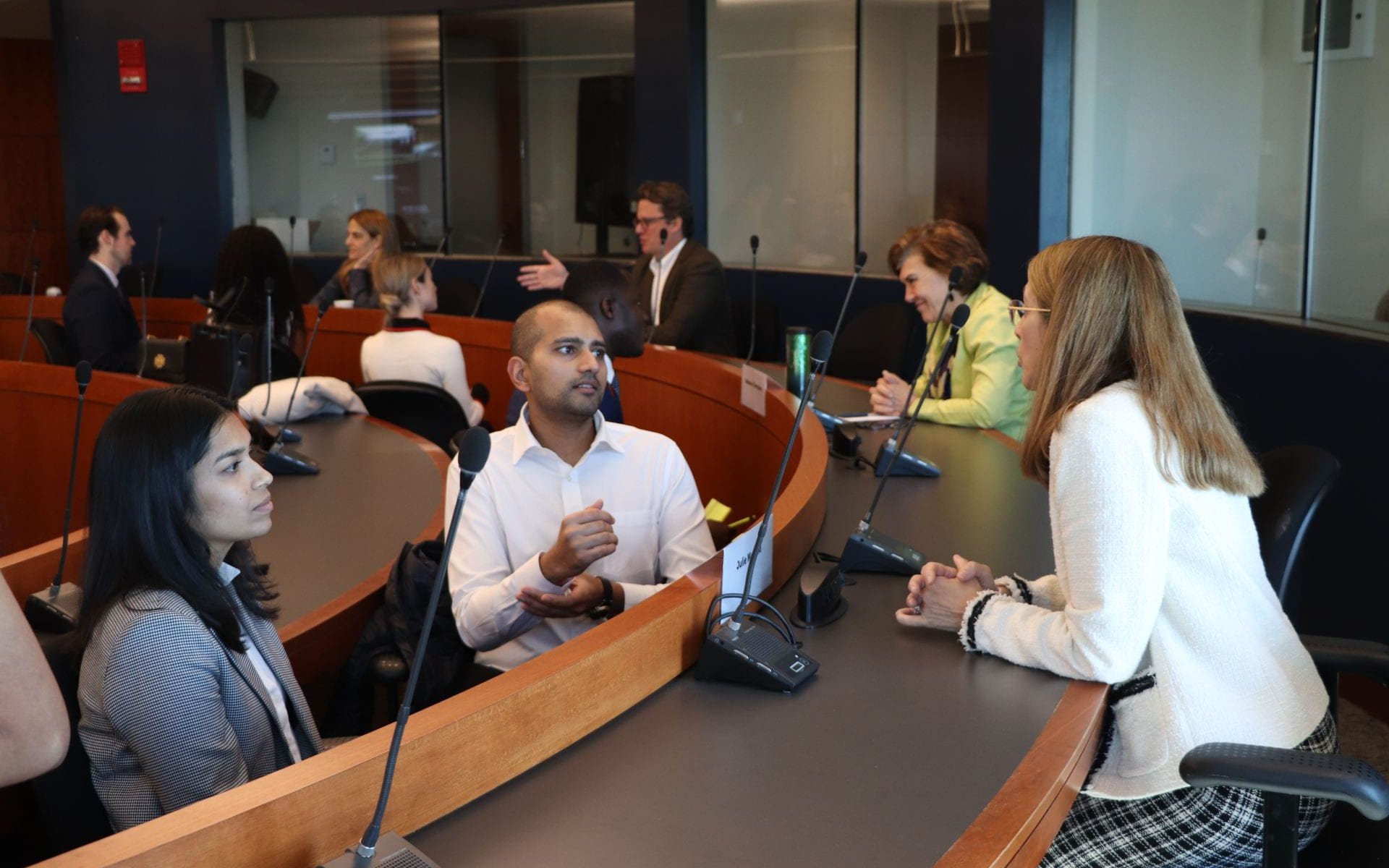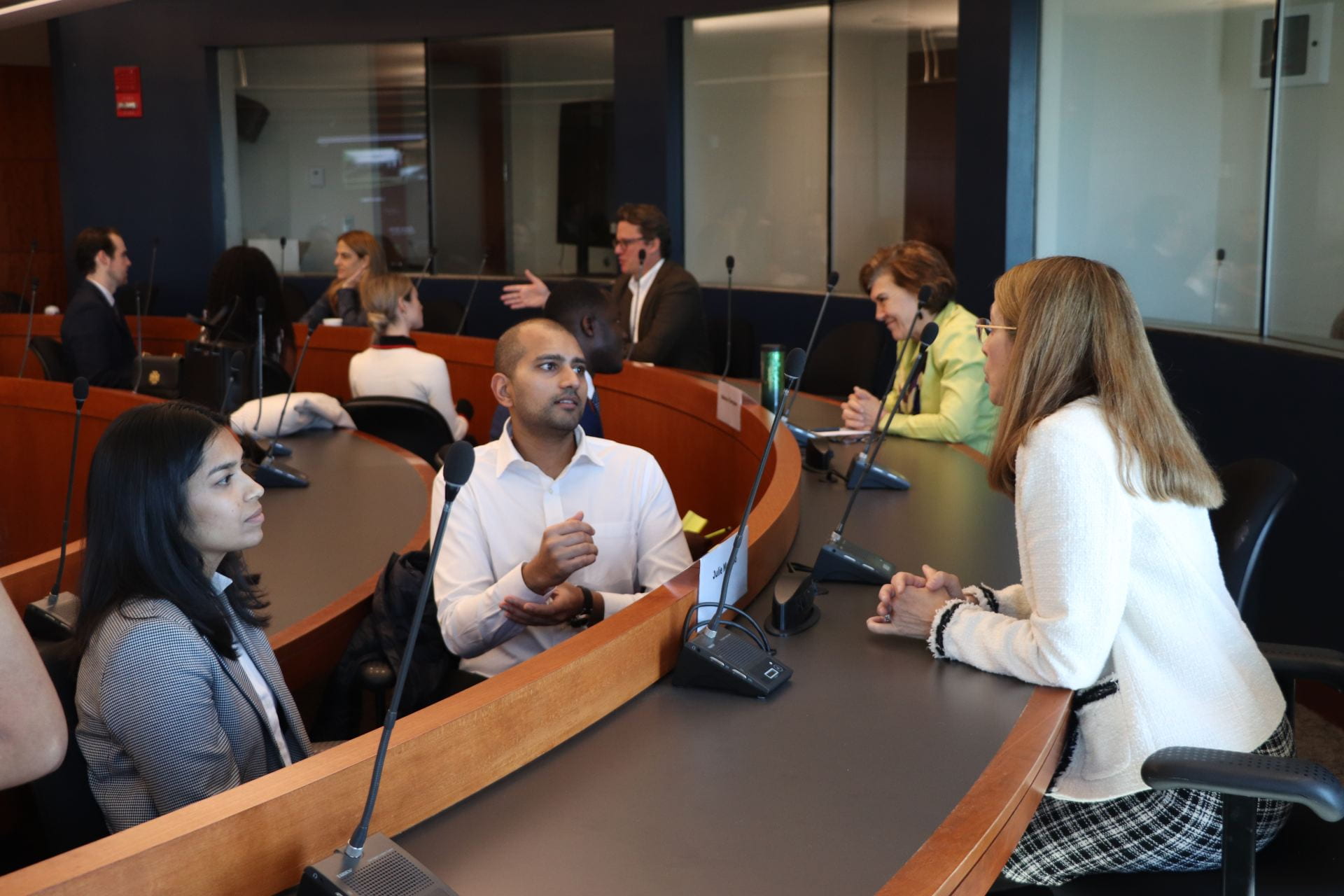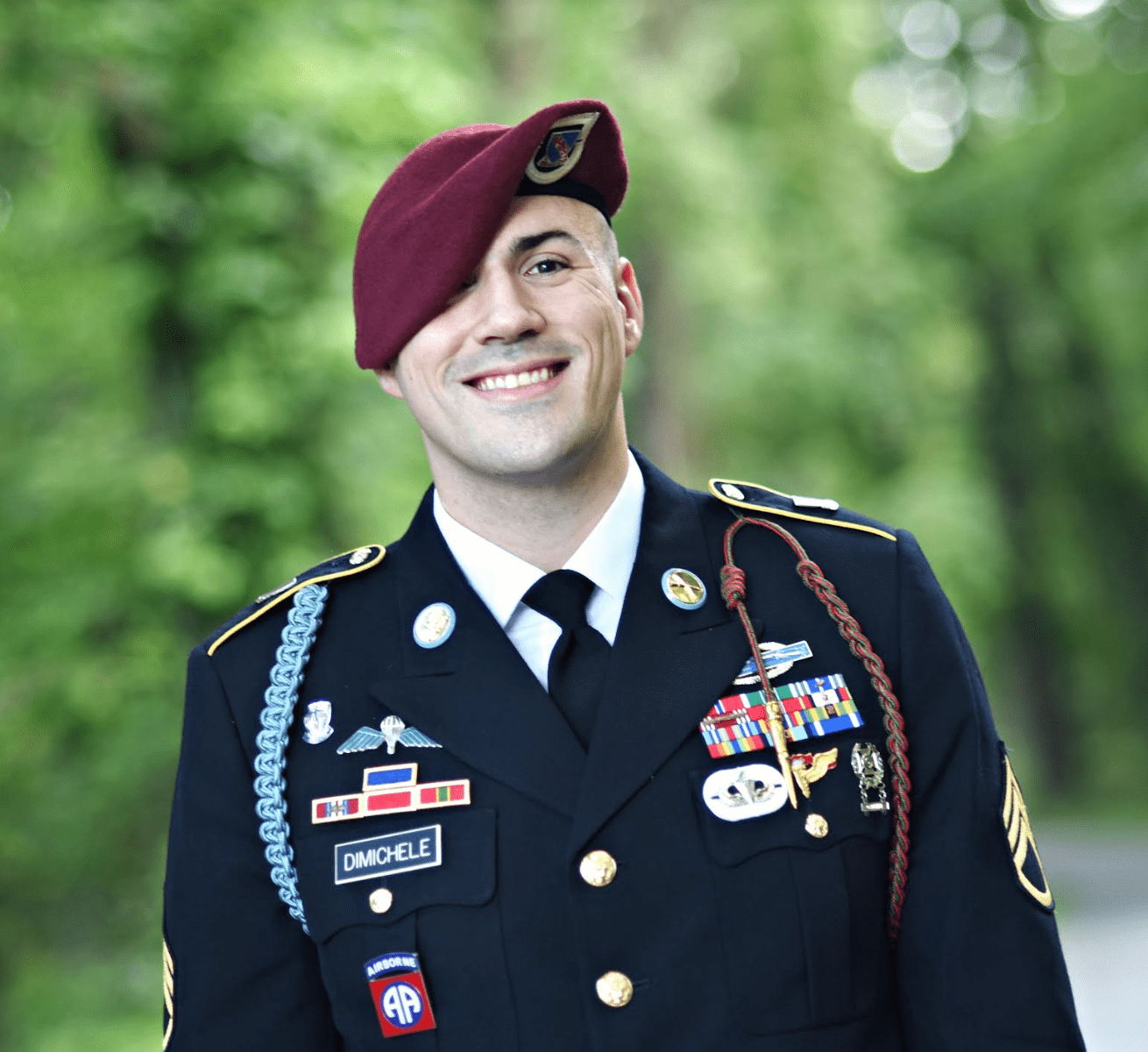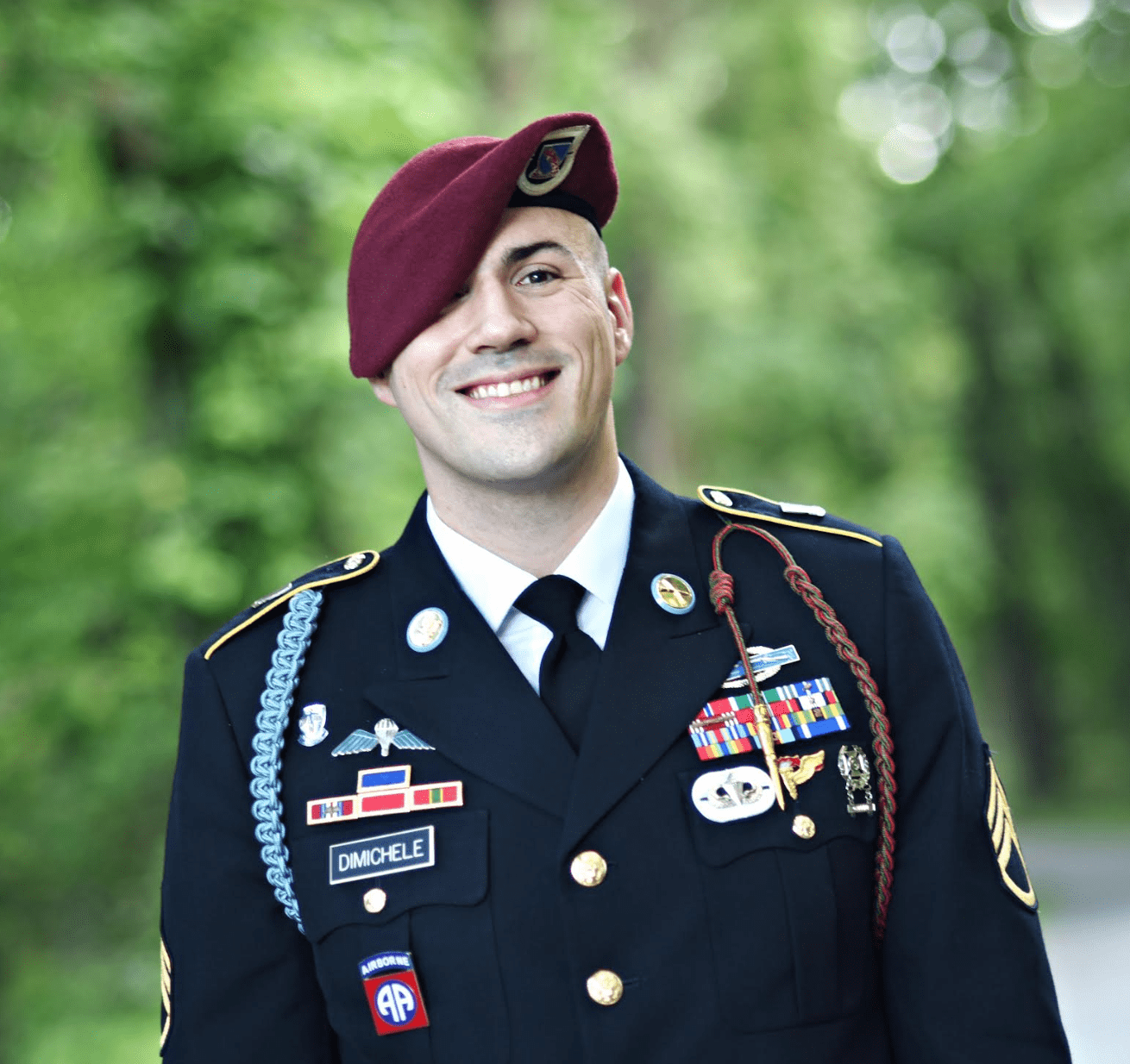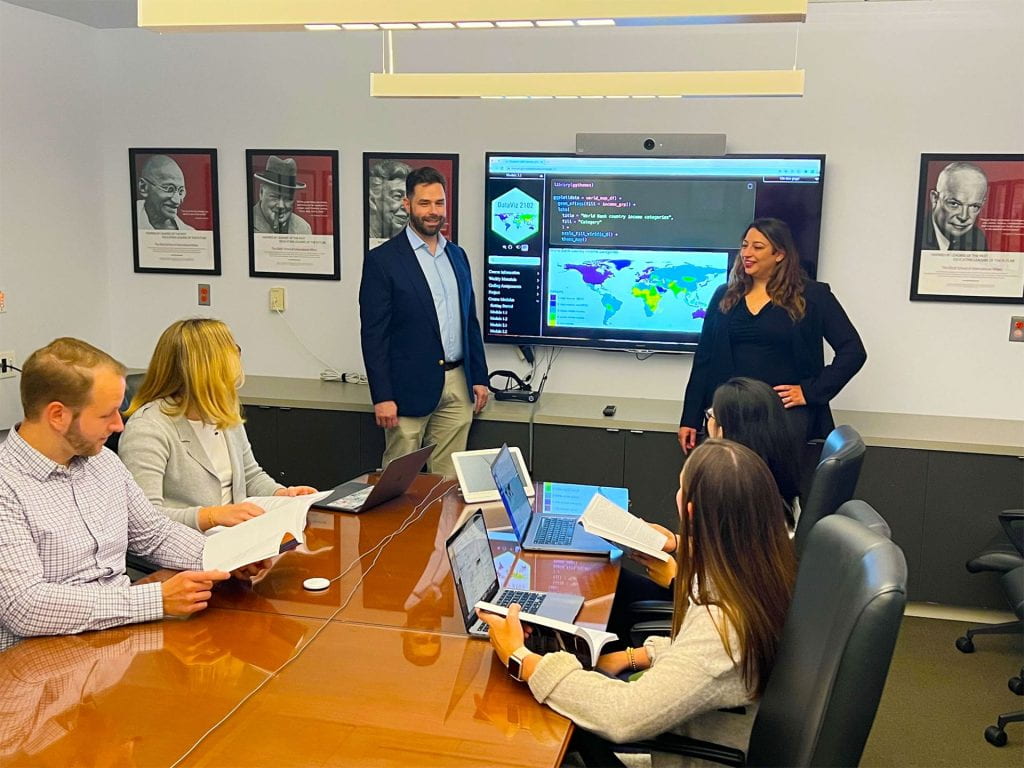
Professors Emmanuel Teitelbaum and Laila Sorurbakhsh discuss data visualizations with Elliott School graduate students and International Affairs practitioners: (left to right) Chris Markiewicz, Chiara Evelti, Uugangerel Bold, and Briana Doyle.
The Elliott School is excited to announce the launch of a new initiative, Data Analytics for Policy Professionals, beginning Fall 2023. Led by Dr. Laila Sorubakhsh and Dr. Emmanuel Teitelbaum, the aim of the initiative is to provide a much-needed bridge between the world of public policy, international affairs, and data analytics. While traditional policy practice may focus more on qualitative or contextual data, the use of quantitative data in reports, presentations, dashboards, and other media are becoming increasingly common in the policy space. Through Data Literacy in International Affairs, our goal is to cross-train both traditional analysts and data scientists to combine their analytic strengths to inform innovative approaches to evidence-based policy.
As part of the initiative, the Elliott School is offering a series of courses at the undergraduate, graduate, and executive level that provide an understanding of which tools are most useful for both specialized and everyday policy practice. Through partnership with organizations and agencies, we seek to better serve our student body and the greater policy community by upskilling our current and future policymakers to respond to a dynamically changing world. These courses will provide students the opportunity to become empowered with the relevant data tools to improve daily operations, better understand policy, and provide evidence-based recommendations for best policy practice.
At the executive level, students, alumni, and practitioners can sign up to take our 1.5 credit weekend workshops offered both in person and online. Credits can be transferred to an Elliott School Masters program or graduate certificate. Fall 2023 offerings include IAFF 6505 Visualizing and Modeling International Politics with Dr. Emmanuel Teitelbaum (ESIA) and IAFF 6505 Expert Policy Decision Making Using Data with Dr. Leonardo Antenangeli (ESIA) and Dan Spokojny (CEO, fp21). Our hands-on approach combines technical training with guest speakers and networking events to put new technical skill sets into practice. Classes are open to beginners with no-coding experience to seasoned analysts looking to add to their skill set or understanding of its applications to the policy world. Information about the courses can be found in more detail here.
The introductory fall 2023 class will receive a special offer for the Initiative’s launch: $1,500 per 1.5 credit workshop in lieu of the standard non-degree student rate of $2,080 per 1 credit.
To apply, please submit your application here . Applications are considered on a rolling basis depending on workshop timing.
For any questions, please reach out to sorurbakhsh@gwu.edu
For additional information on the course offerings, please visit our website at https://elliott.gwu.edu/data-analytics-policy-professionals

